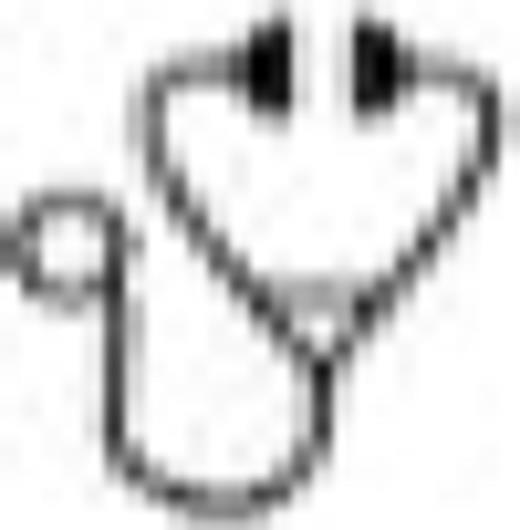Abstract

Rational
The immunomodulatory drug, Lenalidomide (LEN) has proven to be impressively effective for patients (pts) with myelodysplastic syndromes (MDS) harboring deletion 5q and is currently evaluated for registration for pts without del5q. However, we know from prior studies that response rate is limited to 60% of del5q and 25% of non-del5q pts. Moreover, response duration is limited to 24 to 36 months (m) in del5q and 12 to 18m in non-del5q pts. There is no standard option after failure of LEN and so defining the outcome is important in order to define the impact and efficacy of current and future strategies.
Methods
This is an international retrospective study from US, French, German and Italian academic centers. Adult pts were included if they were diagnosed with MDS and received at least one cycle of LEN. Patients were excluded from this analysis if LEN was combined with chemotherapy, hypomethylating agents (HMA), or given preemptively after allotransplant. Median overall survival after LEN failure was the primary endpoint.
Results
425 pts were included and analyzed separately between del5q and non-del 5q patients.
In the del5q cohort (n= 203), median age was 70 years with a female predominance (n=133). 86 pts has del5q syndrome, 43 RARS/RCMD, and 74 pts RAEB-1/2. 34% of pts were previously treated with ESA and 79% were RBC transfusion dependent (TD) at the onset of LEN. Median duration of LEN treatment was 8 months and 115 pts (57%) were responders. Reasons for stopping LEN were loss of HI 55%, no response and SD 27%, no response and PD 11%, intolerance 7%. Median overall survival after LEN failure was 31 months. In pts with lower risk IPSS, ESA resistance, and RBC-TD (n=43), median OS was 43 months. After failure, 64 pts were treated with best supportive care (BSC), 26 were allotransplanted, 69 received HMA, 18 received growth factors, 13 received conventional chemotherapy for progression, and 9 pts received other treatments. There was a significant survival benefit for treated pts vs BSC (39 vs 14m, p=0.01) and for pts treated with HMA post LEN as compared to BSC (31 vs 14m, p=0.003). Advanced age, complex cytogenetics, exposure to HMA prior to LEN, and RAEB negatively impacted outcome in multivariate analysis. Primary vs secondary failure did not influenced outcome but patients with PD without prior HI (11%) had a shorter survival.
In the non-del5q lower risk MDS cohort (n= 222), median age was 70 years with a male predominance (n=153). 62 pts had RARS, 104 RCMD, 28 RA/MDS-U, and 28 pts RAEB-1. 62% of pts had received ESA, 30% had received HMA, and 95 % of the pts were RBC-TD at the onset of LEN. Median duration of LEN treatment was 4 months and 55 pts (24%) were responders. Reasons for stopping LEN were loss of HI 24%, no response and SD 65%, no response and PD 10%, intolerance 1%. Median OS after LEN failure was 40m. In pts with lower risk IPSS, ESA resistance, and RBC-TD (n=68), median OS was 37 m. After LEN failure, 43 pts were treated with BSC, 21 pts were allotransplanted, 85 pts received HMA, 15 pts received growth factors, 15 pts received conventional chemotherapy for progression, 40 pts received other treatments. There was a survival benefit for treated pts vs BSC (42 vs 29m) but this was not statistically significant (p=0.26). None of the therapeutic options including transplantation were able to demonstrate a significant survival benefit as compared to BSC. Based on multivariate model, RAEB and prior HMA exposure negatively impacted outcome after LEN failure. Response to LEN did not favorably influence OS (31m for responders vs 43m in non responders, p=0.12, and 48m vs 47m respectively, p=NS, when survival is calculated from LEN onset), suggesting the absence of disease modifying effect in non del5q MDS
Conclusions
This is the first large study analyzing the outcome of MDS pts after lenalidomide failure Survival without treatment remains relatively poor in both groups and there is only a limited impact of conventional approaches. HMA may represent an interesting option for del5q pts. This study stresses the unmet need for new strategies and gives the basis for the design of future clinical trials.
Prebet:CELGENE: Research Funding. Off Label Use: lenalidomide. Park:Novartis: Membership on an entity's Board of Directors or advisory committees, Research Funding; Hospira: Research Funding; Celgene: Research Funding. Platzbecker:Amgen, Inc.: Honoraria; Celgene: Honoraria; Novartis: Honoraria; GlaxoSmithKline: Honoraria, Research Funding. Vey:Celgene: Honoraria; Janssen: Honoraria; Roche: Honoraria. Fenaux:Celgene Corporation: Honoraria, Research Funding; Amgen: Honoraria, Research Funding; Janssen: Honoraria, Research Funding; Novartis: Honoraria, Research Funding. Gore:Celgene: Consultancy, Honoraria, Research Funding. Komrokji:Pharmacylics: Speakers Bureau; Celgene: Consultancy, Research Funding; Novartis: Research Funding, Speakers Bureau; Incyte: Consultancy.
Author notes
Asterisk with author names denotes non-ASH members.

This icon denotes a clinically relevant abstract



This feature is available to Subscribers Only
Sign In or Create an Account Close Modal